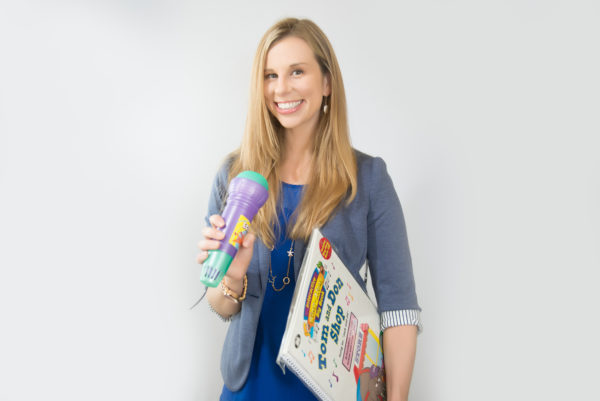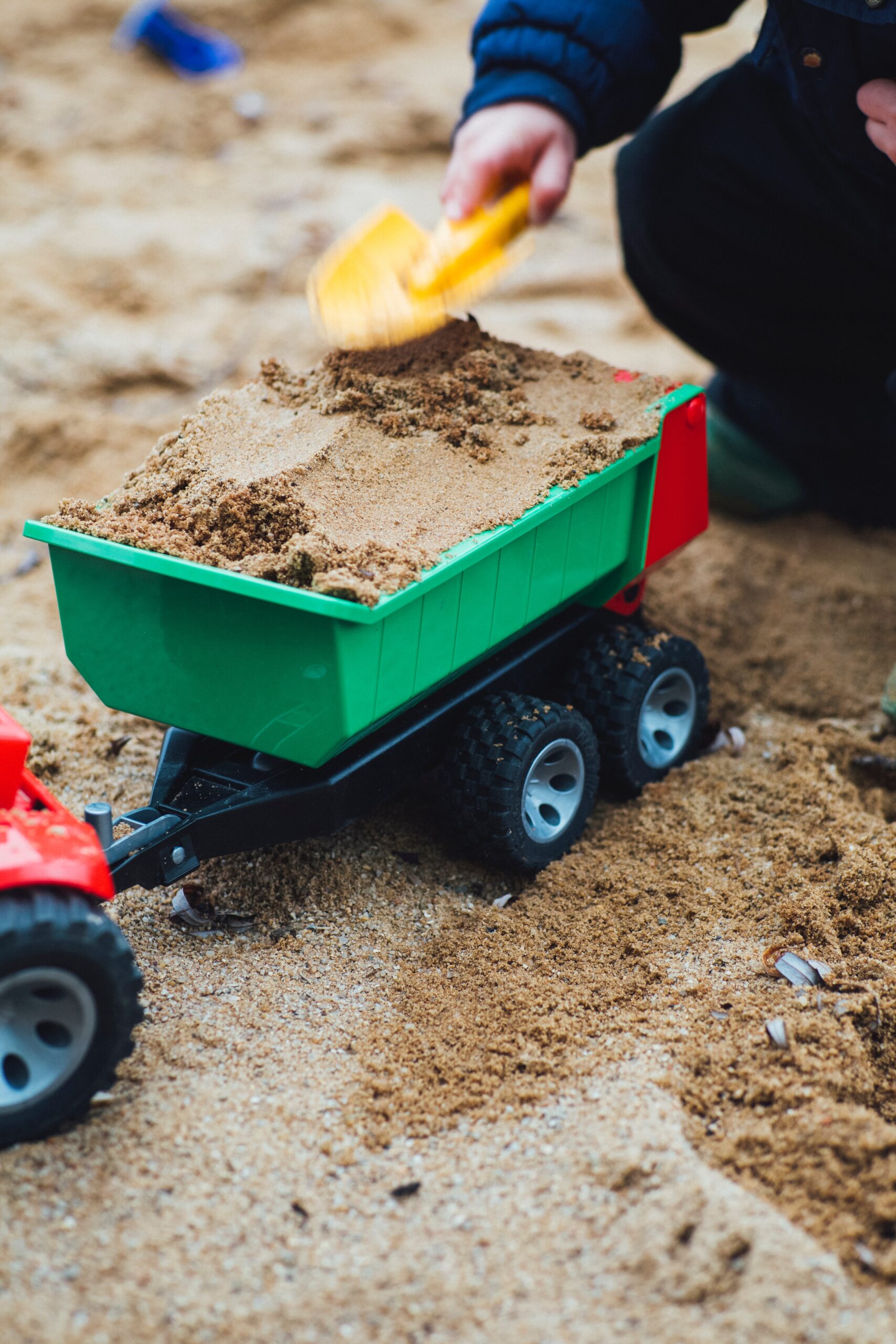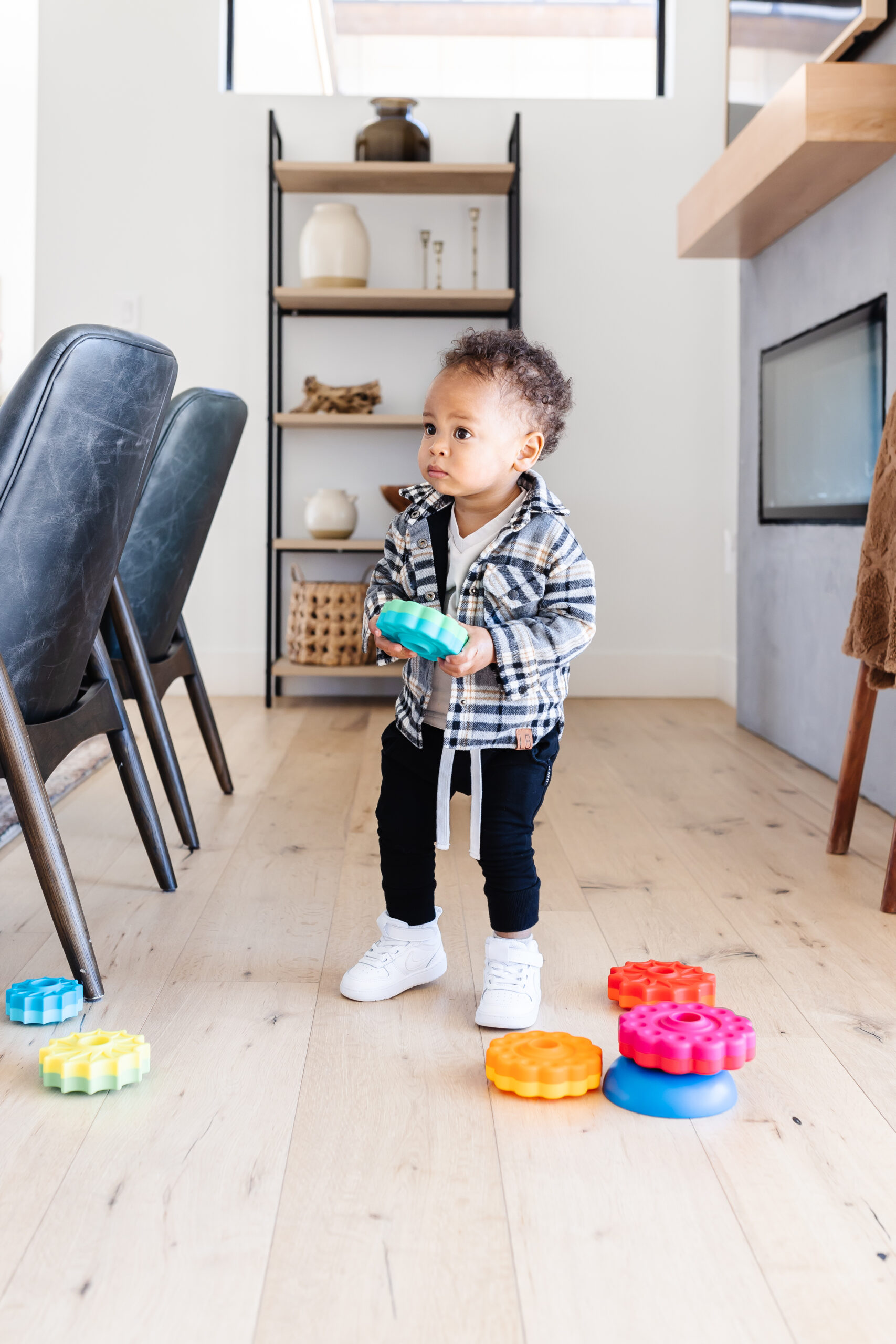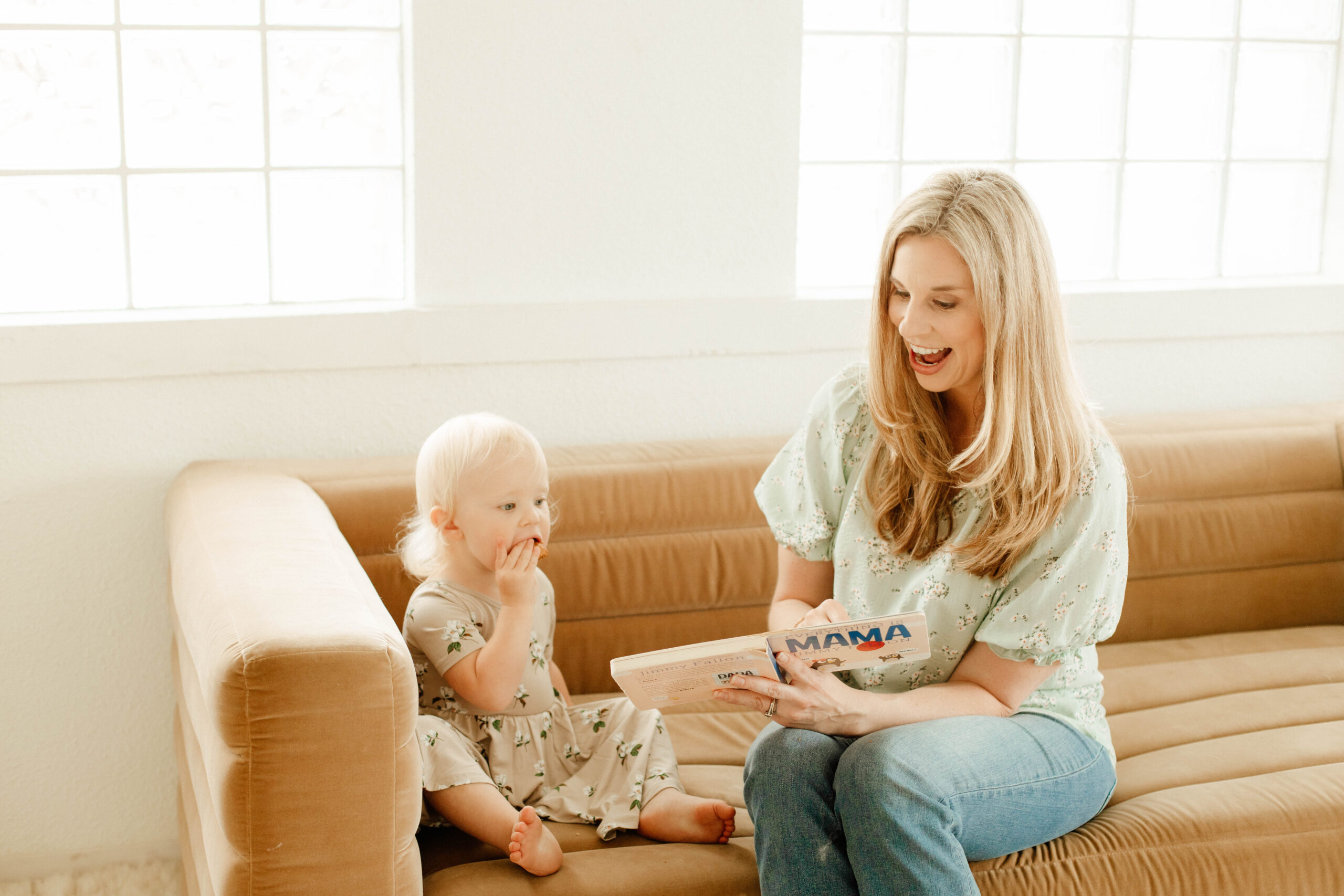
When I was a beginning clinician in early intervention, there were two things that helped me through my first year as a clinical fellow: bubbles and “more.” Although bubbles are still my one of my staples, since then I have learned much more about child language development. Although “more” is a great beginning word, I want to explain why we don’t want to get “stuck” on “more.”
In a study by Hadley, Rispoli, and Hsu, the authors found that diversity of verbs in spontaneous speech was the single best predictor for later grammatical outcomes. In another study (Hsu et al. 2015) the authors found that the types of verbs children used were related to their sentence length three months later. This means that as parents and therapists, we need to make sure we are modeling a variety of word types. When we get “stuck” on “more” we are missing opportunities to work on other verbs. For example, if we only model “more” when a child wants more crackers, we are missing opportunities to work on words such as “open,” “put” (on tray), “scoop,” etc. We are also missing opportunities to work on nouns, adjectives, and adverbs.
Additionally, the word “more” can come to stand for everything for a child. For example, a child may learn to use the sign or word ”more” when they want their cookies, when they want their cookies opened, and when they want more cookies. They may also have difficulty communicating exactly what they want when become so dependent on “more.” When we only focus on “more,” we miss out on valuable opportunities for learning vocabulary and language.
Another problem with getting “stuck” on more is that it does not work towards taking children to the next level. As a child gets the hang of using single words, we want to move them towards the next step, which is combining words. Ideally, we want to see a child move from one level to the next within six months. One way we do this is through expanding a child’s message. When a child uses a single word, we can repeat the word they say and add 1-2 words. For example, if a child asks for “more,” we can model “more crackers” or “I want crackers!” We do not want to put pressure on them to repeat. Model how to use language and give them the opportunity to respond.
In summary, learning to ask for “more” is a wonderful tool for children who are learning to communicate. It is so exciting to watch a child learn that they can communicate what they want! It’s important to celebrate this milestone. Just remember not to get “stuck” on “more” and to continue to encourage your child’s language and communication skills through modeling lots of words and language!
References:
Hadley A., Rispoli M., and Hsu N. Toddler’s Verb Lexicon Diversity and Grammatical Outcomes. Language, Speech, and Hearing Services in Schools, January 2016, Vol. 47, 44-58.
Hadley A., Rispoli M., and Hsu N.. Diversity Matters: Parent Input Predicts Toddler Verb Production. Journal of Child Language, December 2015, 44 (1), 63-86.

Brooke Andrews is a Pediatric Speech Pathologist and the owner of The Speech Dynamic PLLC. She provides play based and family centered speech therapy in the Houston area. She is the co-creator of “Wiggle time,” an interdisciplinary curriculum for pediatric therapy. She has presented at The North Carolina Exceptional Children’s Conference regarding embedding language into routines. She has also shared her expertise on a panel for The University of North Carolina at Chapel Hill. Brooke has a passion for helping families understand the importance of play for speech & language development.






